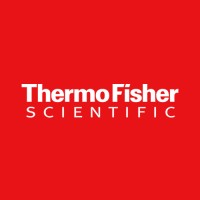CD8a / Brilliant Violet 650 / RPA-T8
Product Details
| Description | CD8a Monoclonal Antibody (RPA-T8), Brilliant Violet™ 650, eBioscience™ | |
|---|---|---|
| Conjugate | Brilliant Violet 650 | |
| Clone | RPA-T8 | |
| Target Species | Human | |
| Applications | FC | |
| Supplier | Thermo Fisher Scientific | |
| Catalog # | Sign in to view product details, citations, and spectra | |
| Size | ||
| Price | ||
| Antigen | ||
| Host | ||
| Isotype |
About CD8a
The CD8 antigen is a cell surface glycoprotein found on most cytotoxic T lymphocytes that mediates efficient cell-cell interactions within the immune system. The CD8 antigen acts as a coreceptor with the T-cell receptor on the T lymphocyte to recognize antigens displayed by an antigen presenting cell in the context of class I MHC molecules. The coreceptor functions as either a homodimer composed of two alpha chains or as a heterodimer composed of one alpha and one beta chain. Both alpha and beta chains share significant homology to immunoglobulin variable light chains. This gene encodes the CD8 alpha chain. Multiple transcript variants encoding different isoforms have been found for this gene. The major protein isoforms of this gene differ by the presence or absence of a transmembrane domain and thus differ in being a membrane-anchored or secreted protein. [provided by RefSeq, May 2020]
The CD8 antigen is a cell surface glycoprotein found on most cytotoxic T lymphocytes that mediates efficient cell-cell interactions within the immune system. The CD8 antigen acts as a coreceptor with the T-cell receptor on the T lymphocyte to recognize antigens displayed by an antigen presenting cell in the context of class I MHC molecules. The coreceptor functions as either a homodimer composed of two alpha chains or as a heterodimer composed of one alpha and one beta chain. Both alpha and beta chains share significant homology to immunoglobulin variable light chains. This gene encodes the CD8 alpha chain. Multiple transcript variants encoding different isoforms have been found for this gene. The major protein isoforms of this gene differ by the presence or absence of a transmembrane domain and thus differ in being a membrane-anchored or secreted protein. [provided by RefSeq, May 2020]
About Brilliant Violet 650
Brilliant™ Violet 650 (BV650) is a red-emitting tandem fluorophore that can be excited by the 405 nm Violet laser and collected using a 660/20 bandpass filter. BV650 has an excitation peak at 405 nm and an emission peak at 645 nm. Due to its unique Stokes shift, not many dyes have identical excitation and emission spectrums, but the nearest alternatives include SuperBright 645, Qdot® 655 and eFluor™ 650NC (ThermoFisher). BV650 exhibits a medium level of brightness and is most often used in flow cytometry, specifically, it is an alternative to nanocrystals used for intracellular flow. This dye is part of the Brilliant™ Violet dye line of fluorescent polymers. Brilliant™ Violet 421 polymer is employed as the donor molecule in a series of tandem dyes with acceptor molecules emitting at various points across the visible light spectrum. The Brilliant™ Violet dyes are a superior alternative to QDot nanocrystals and similar to SuperNova dye from Beckman Coulter and StarBright dyes from Bio-Rad.
Brilliant™ Violet 650 (BV650) is a red-emitting tandem fluorophore that can be excited by the 405 nm Violet laser and collected using a 660/20 bandpass filter. BV650 has an excitation peak at 405 nm and an emission peak at 645 nm. Due to its unique Stokes shift, not many dyes have identical excitation and emission spectrums, but the nearest alternatives include SuperBright 645, Qdot® 655 and eFluor™ 650NC (ThermoFisher). BV650 exhibits a medium level of brightness and is most often used in flow cytometry, specifically, it is an alternative to nanocrystals used for intracellular flow. This dye is part of the Brilliant™ Violet dye line of fluorescent polymers. Brilliant™ Violet 421 polymer is employed as the donor molecule in a series of tandem dyes with acceptor molecules emitting at various points across the visible light spectrum. The Brilliant™ Violet dyes are a superior alternative to QDot nanocrystals and similar to SuperNova dye from Beckman Coulter and StarBright dyes from Bio-Rad.
Experiment Design Tools
Panel Builders
Looking to design a Microscopy or Flow Cytometry experiment?
Validation References
Reviews & Ratings
| Reviews |
|---|
Looking for more options?
3339 CD8a antibodies from over 46 suppliers available with over 184 conjugates.





